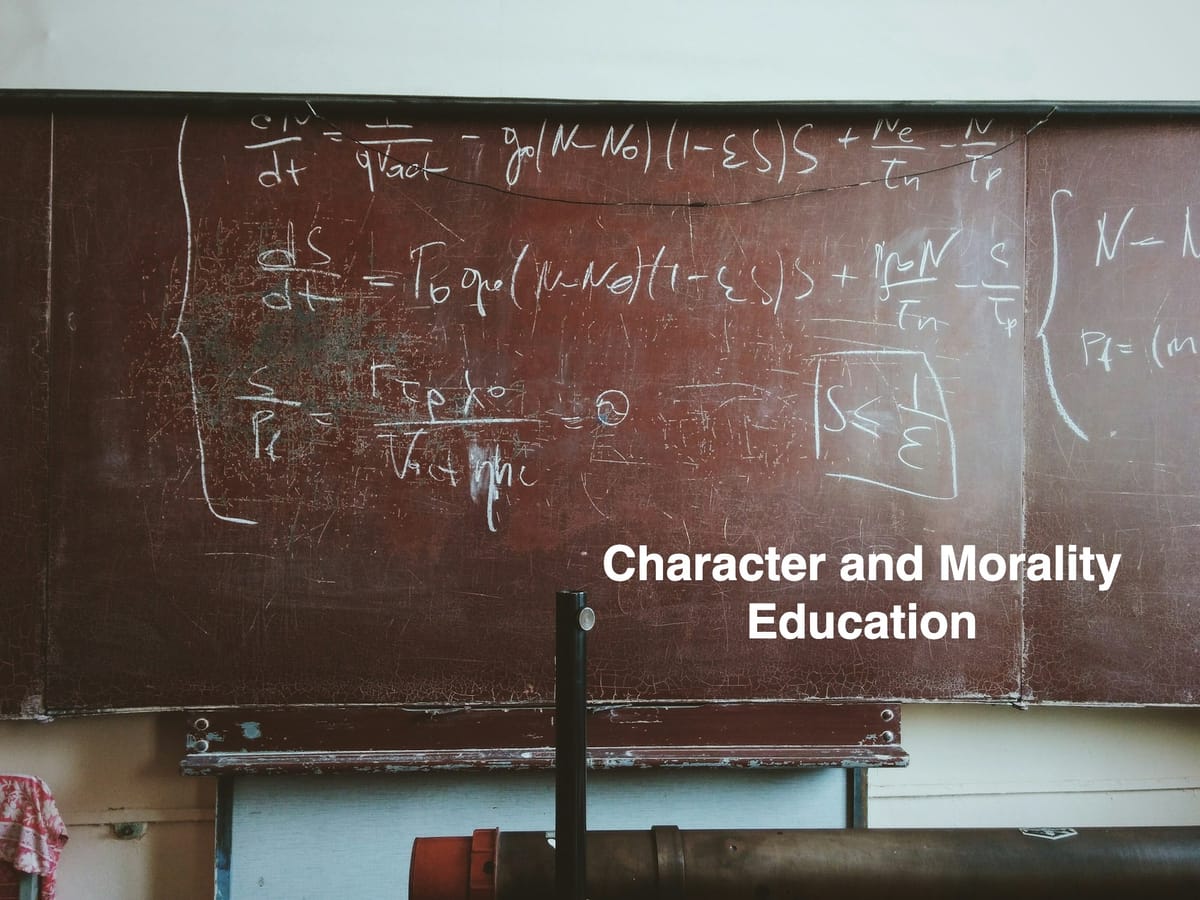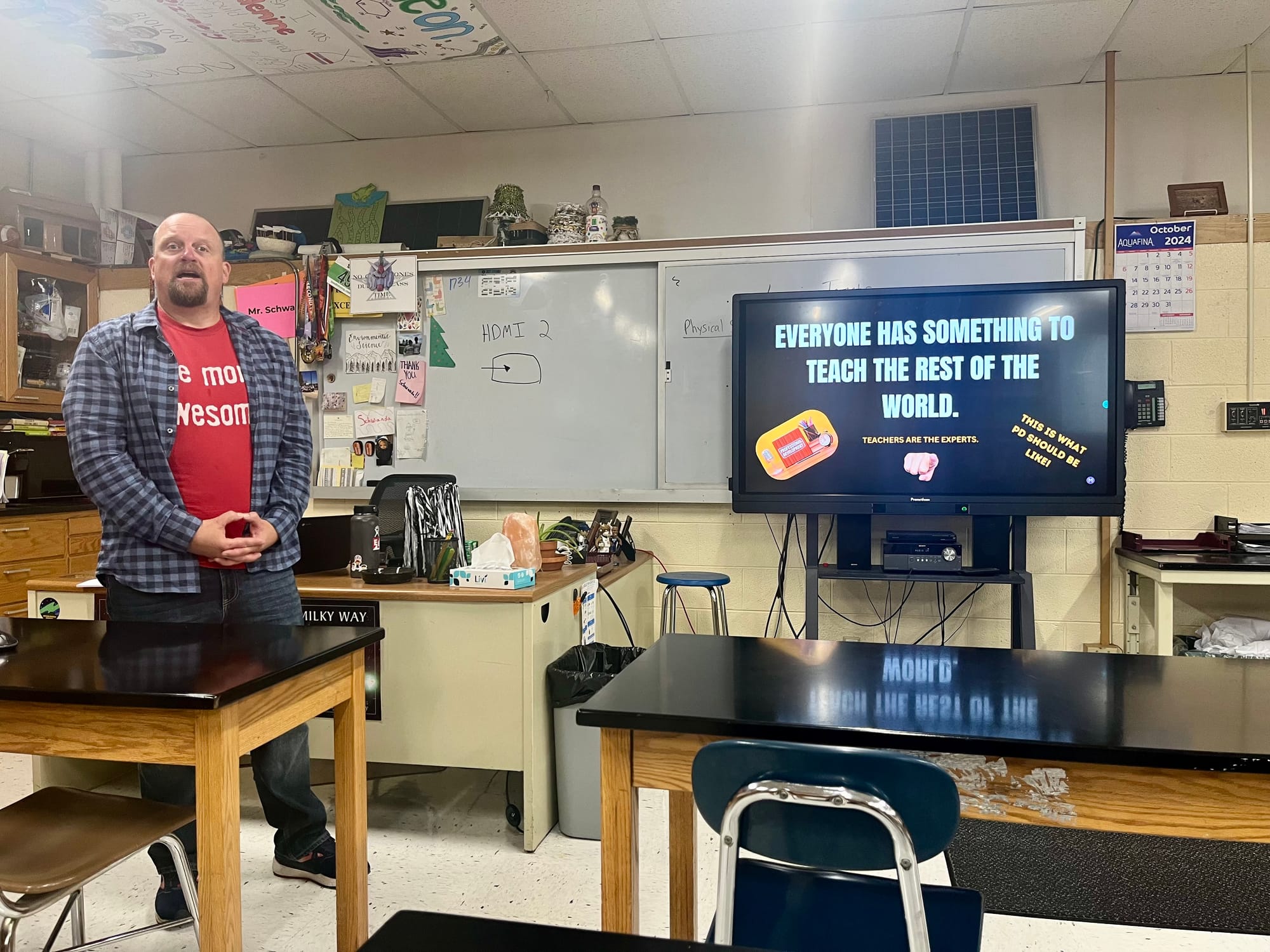Character and Morality Education
Explore innovative teaching strategies, including sharing student work online, integrating moral education, and applying Sardinian longevity practices in the classroom. Discover how these approaches enhance student motivation, character development, and teacher well-being.

As an Amazon Associate, I earn from qualifying purchases. All affiliate links are marked with an asterisk (*). This helps support the newsletter. Thank You! Read more here.
The Friday Five
Welcome to this week’s Friday Five. I've been trying to figure out the ins and outs of YouTube recently, so I thought I'd record a video to share this week. You have to start somewhere.
If you don't end up watching it, the theme is expressing my gratitude for your participation in the Why Edify community.
Have a great weekend!
Here are some questions to ponder as you read this week's newsletter—bonus points for sharing your answers in your social media community. We can connect here. You can also comment at the bottom of the online version of this newsletter.
Reflection Questions for This Week:
- How can you incorporate more opportunities for students to share their work with authentic audiences, and what impact might this have on their motivation and learning?
- How can you integrate character education or ethical guidelines into your teaching practice without compromising academic content?
- Which Sardinian longevity practices resonates most with you, and how might you adapt it to enhance your teaching and personal well-being?
1
Authentic Audience
Sharing student work online or in person can transform classrooms. Knowing an audience will see it motivates students to improve their craftsmanship. This approach encourages real-world learning and student ownership. Feedback from various sources helps students improve and gain new insights. Students also learn to be advocates and critics, preparing for future challenges. This practice creates a more interactive and team-oriented learning space, benefiting everyone involved in the education process.
2
Morality in Education
What would society be like if schools started to include “moral” education? A set of ethical guidelines that could steer young people towards traits like honesty, compassion, and duty. By teaching these values from an early age, we can set the next generation up to achieve personal success and make meaningful contributions to society and the global community. “In 1916, the Character Education Institution, a kind of think-tank for research on moral education in schools, held a contest for the best morality code for children — a code which explained the fundamental basics of living a moral life. The winning entry was penned by William J. Hutchins, a college president. It was then checked against lists of 650 potential moral acts, 92 “desirable human characteristics,” other contest entries, and literature on moral education, and subsequently revised and expanded accordingly.
3
Live Long and Educate
Discover how to incorporate longevity-promoting practices from Sardinia into your teaching methods. This approach offers five practical strategies that are easy to implement in the classroom. From encouraging active learning to fostering a strong sense of community, these techniques can help energize your classroom, enhance student participation, and improve your overall well-being as an educator.

4
What You Really Are
“Be more concerned with your character than your reputation, because your character is what you really are, while your reputation is merely what others think you are.” - John Wooden
5
Teacher Commuter Playlist - I'm a Changed Man by The Impressions.
What's on your playlist this week?
Choose Your Own Adventure
- This past week, I presented at a common professional development day. It was awesome to share what I've been working on. I created a blog post to accompany it. There are some great resources. I hope you think so too - Professional Development for Educators: A Choose Your Own Adventure Guide to Growth and Self-Care


The Power of Telling Your Story and Teacher Self-Care
- Book Suggestion - "Visible Learning for Teachers: Maximizing Impact on Learning"* by John Hattie - Hattie synthesizes over 800 meta-analyses relating to student achievement, providing evidence-based answers about what works best in education. This book guides teachers to evaluate their practices and make data-driven decisions to enhance student learning.
- I'm not proud of this one. Just so you know, I did work out the next day.
- Teacher Highlight - You are never too old to get out the parachute.
LEARN. DO. REFLECT. DO BETTER. CELBRATE. REPEAT.
#WHYEDIFY

❤ Enjoy this Newsletter?
🍵 Show Your Support and 🤗 Share It



